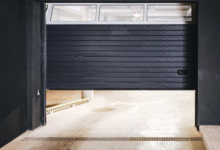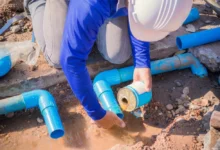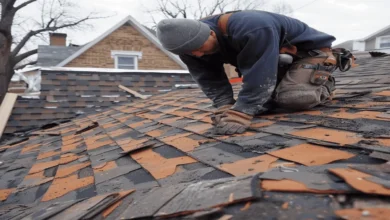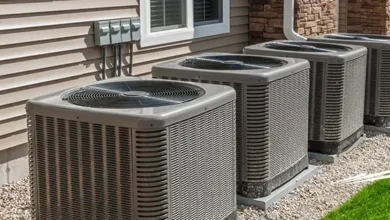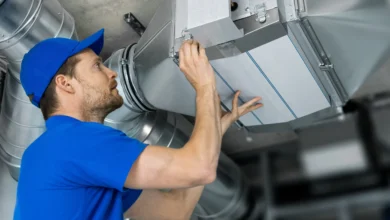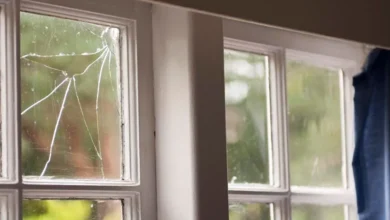When to Call for Emergency Garage Door Repair: Signs to Watch For
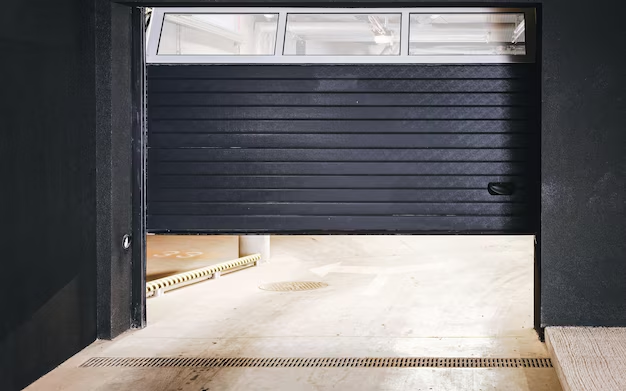
Introduction
Your garage door plays a crucial role in the functionality and security of your home. It’s more than just a way to keep your car protected from the elements; it serves as an entry point to your home, adds to the aesthetic appeal of your property, and often provides additional storage space. Given the importance of your garage door, it can be incredibly frustrating when it suddenly malfunctions, leaving you stranded with a door that won’t open or close properly.
While regular maintenance can help prevent many issues, garage doors are complex systems with many moving parts. Over time, parts can wear out, or unexpected events can cause damage that requires immediate attention. Knowing when to call for emergency garage door repair is essential to ensure that you aren’t left dealing with a serious issue that compromises the security or functionality of your garage.
Why Emergency Garage Door Repair is Important
Garage doors are often one of the most used entry points into a home, second only to the front door. Given the frequency of use and the complex mechanics involved, it’s inevitable that problems will arise over time. When something goes wrong with your garage door, it’s important to address the issue quickly to prevent further damage and ensure the safety and security of your home.
Emergency garage door repair in Scottsdale AZ can range from minor fixes to major repairs that require immediate professional intervention. If left unattended, a malfunctioning garage door can not only be a nuisance but could lead to significant safety risks or damage to your home, vehicle, or garage door system.
Signs That Indicate You Need Emergency Garage Door Repair
There are several common signs that suggest your garage door may need emergency repair. These signs range from visible physical damage to sounds and behaviors that indicate mechanical failure. Below, we’ll explore some of the most common problems and help you understand when they require urgent attention.
1. The Garage Door Won’t Open or Close
If your garage door fails to open or close, this is the most obvious sign that you need immediate attention. This issue can be caused by a variety of factors, including:
- Broken Springs: One of the most common causes of a non-functioning garage door is broken springs. These springs are under high tension and bear the weight of the door as it opens and closes. Over time, springs can weaken or snap, preventing the door from moving properly.
- Malfunctioning Opener: If the motor or gears in the garage door opener are faulty, it can prevent the door from functioning. This is especially common if the opener is old or has been subjected to wear and tear.
- Disengaged Trolley: If the trolley that connects the opener to the door becomes disengaged, the door will not open. This can happen if the opener is incorrectly aligned or if there’s a mechanical issue with the drive system.
- Power Failure: Sometimes, a simple power outage or tripped circuit breaker can prevent the garage door from opening or closing. Check if there’s power to the garage door opener and reset the breaker if needed.
When the garage door won’t move, it’s essential to avoid attempting to fix the issue yourself, especially if it involves broken springs or the opener motor. These components are under significant tension and can be dangerous if handled improperly. Always call for professional emergency repair to handle these issues safely.
2. The Garage Door is Off Its Tracks
If your garage door comes off its tracks, it is not only a frustrating inconvenience, but it can also be a significant safety hazard. A door that is off track can lead to:
- Imbalanced Door: When the door is no longer aligned properly, it can cause the door to become uneven as it opens or closes. This can place undue stress on the system, potentially damaging the door and other components.
- Failure to Close Completely: An off-track door may not fully close, leaving your garage vulnerable to the elements or burglars. In some cases, the door may even become stuck halfway, rendering it unusable until repaired.
- Further Damage: If the door continues to move while off its tracks, it can damage the tracks, rollers, and other moving parts. This can lead to more expensive repairs down the line.
An off-track garage door should always be repaired as soon as possible. Attempting to fix it on your own can cause more damage or even result in injury. Contact a professional garage door technician who can safely realign the door and fix any damage.
3. The Door Makes Loud, Unusual Noises
While it’s normal for garage doors to make some noise during operation, unusual or excessively loud noises are often an indication of an underlying issue. Common noises and their potential causes include:
- Grinding Noises: A grinding sound may indicate a problem with the door’s rollers, tracks, or opener. If the rollers are damaged or misaligned, they can cause friction against the tracks, leading to a grinding sound.
- Banging or Popping Noises: If you hear loud bangs or pops when the door is opening or closing, this may be a sign of a broken spring or cable. These components are under significant tension, and a break can cause a sudden, loud noise.
- Squeaking: A squeaky garage door can often be solved with lubrication, but if the squeaking persists or is accompanied by other issues, it may indicate more serious problems with the door’s hardware.
Unusual noises should be investigated as soon as possible. Failing to address these issues can lead to further wear and tear on the system, leading to more expensive repairs in the future.
4. The Door Closes Partway and Reverses
If your garage door starts to close and then reverses back up, this is a classic symptom of a safety sensor malfunction. Modern garage doors are equipped with sensors that prevent the door from closing if an object is in the way. However, the sensors themselves can malfunction, causing the door to reverse unexpectedly. Common causes include:
- Dirty or Misaligned Sensors: If the sensors are obstructed by dirt, debris, or misaligned, they may not detect the door’s position correctly and will cause the door to reverse.
- Wiring Issues: A loose or frayed wire connected to the sensor can cause the door to behave erratically. If the wiring is damaged, it may need to be repaired or replaced to restore proper functionality.
If your garage door is reversing unexpectedly, do not attempt to force the door closed. This could result in further damage. Instead, contact a professional technician to inspect and repair the sensors.
5. The Door Is Sticking or Moving Slowly
If your garage door is moving slowly or sticking during operation, it may indicate issues with the door’s tracks, springs, or opener. The following factors could be at play:
- Track Misalignment: If the tracks are bent, misaligned, or obstructed, the door may not move smoothly along its path. This can cause the door to move slowly or get stuck entirely.
- Worn Springs: Springs that are worn or damaged may struggle to support the weight of the door, causing it to move slowly or become stuck. Worn-out springs can also cause uneven movement, with one side of the door moving faster than the other.
- Opener Issues: A malfunctioning opener motor or gear may also contribute to a slow-moving door. In many cases, this can be attributed to wear and tear or a lack of lubrication.
Sticking or slow movement is not only an inconvenience, but it can also indicate that further damage is imminent. If left unresolved, the door may become completely inoperable.
What to Do When You Need Emergency Garage Door Repair
When any of the signs above occur, it’s essential to act quickly. Here’s what you should do:
- Assess the Situation: Before calling a repair service, make sure to assess the issue safely. If the door is stuck open or closed, ensure that no one is in the path of the door and that it’s not creating a security risk.
- Avoid DIY Repairs: Garage doors are heavy and complicated systems with many moving parts. DIY repairs can lead to further damage and potential injury. Leave the repairs to professionals who are trained to handle the issues safely.
- Contact a Professional: Call a trusted garage door repair service that offers emergency services. Many reputable companies provide 24/7 emergency repairs and can come to your home quickly to resolve the issue.
- Preventative Maintenance: Once the repair is complete, consider scheduling regular maintenance to prevent future emergencies. Routine checks can help identify issues before they become major problems.
Conclusion
Your garage door is an essential part of your home’s security and functionality. When it malfunctions, it can disrupt your daily routine and create unnecessary stress. Understanding the signs that indicate you need emergency garage door repair is crucial in preventing further damage and ensuring the safety of your home. Whether it’s a door that won’t open, strange noises, or sudden malfunctions, recognizing these issues early on can save you time, money, and frustration.
